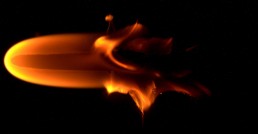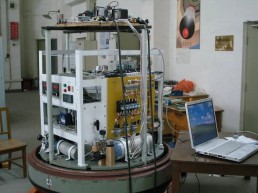Specialist Node > Powering Spacecraft
Our research team, led by Dr Saif Al Ghafri and Dr Arman Siahvashi, focusses on studying the ignition, combustion and explosion characteristics of propellants used in rocket engines under different environmental conditions. We also investigate improving the efficiency, reliability and safety of long duration storage of large quantities of cryogenic fluids used for space missions.
Long duration storage of large quantities of cryogenic fluids is essential for space missions, including orbit transfer vehicles, upper stages of rockets, and deep space exploratory missions.
We study the effect of thermal stratification and boil-off of rocket propellant tanks which is critically important due to the impact on tank pressure, structural weight and the accompanying pressurisation system weight. Boil-off is particularly important during atmospheric departure and re-entry, where frictional drag forces result in substantial heat entering the containment vessel, increasing vapour temperature and pressure.
The non-convective, low-gravity environment (microgravity) of spacecraft strongly influences the processes of combustion and consequently fire safety. This group looks at the fundamental ignition and combustion behaviour of solid materials in low gravity that may be relevant to spacecraft fire prevention and control. We will determine the effect of pressure, temperature and fuel composition on the ignition and heat release.
We also look at the possibilities of utilising Lunar in-situ resources to support NASA missions, instead of bringing everything from Earth. This can lead to significant reductions in launch and landing mass, crew health and mission risks, and life-cycle costs for human exploration beyond Earth’s orbit.


